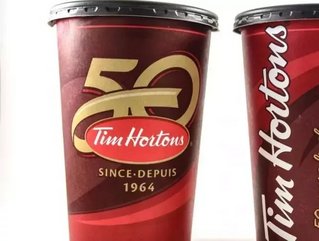How Tim Hortons continues to successfully build customer trust

Tim Hortons has been mentioned a lot lately—for good reason, too! Whether the company is making waves with a new commercial or introducing a new product, the fast food chain is doing something right. Most recently, Tim Hortons topped the list of the most-trusted brands in Canada.
RELATED TOPIC: Can other restaurants learn from Tim Hortons’ recent marketing technique?
As the company continues to build customer trust and find success, it’s important for other businesses to take a look at Tim Hortons’ strategy and see what methods can be learned and possibly followed. After all, rankings depended on various factors that included quality, innovation, value, leadership and social responsibility—shouldn’t all companies (no matter how small or big) strive for greatness in these areas?
RELATED TOPIC: Top 10 franchises born and raised in Canada
Originally reported by the Globe and Mail, the Peter B. Gustavson School of Business at the University of Victoria conducted the test. A sample of 3,125 Canadian consumers ranked a total of 249 brands in 22 various industries. As a recent survey by global PR firm Edelman discovered that Canadians are losing trust in a range of institutions and companies, the test was conducted by the business school to learn which businesses were doing and right and which ones desperately needed to step up their game.
“That’s a key part of what we were looking at,” Dr. Klein said. “Why overall trust is going down, why some brands are performing poorly but others are doing well. The idea is to focus on the ones doing well to understand why.”
RELATED TOPIC: Will McDonald’s new menu items last?
Once the test was officially completed, it was found that consumers trust on two different levels: functional and emotional. Functional trust comes from metrics that include quality, reliability and consistency. However, emotional trust comes from what the brand is specifically doing and how that resonates with customers.
Therefore, it would appear that Tim Hortons has these two areas locked down. The company consistently offers quality products to its customers, all the while earning the client’s emotional trust by paying particular attention to what its brand represents.
Tim Hortons also most likely received bonus points due to the fact that Canadians seems to have a strong preference for local names.
For the latest news in the food industry, visit our sister brand Food Drink & Franchise.
RECENT TOPIC: Some Canadian companies are nailing content marketing
[SOURCE: The Globe and Mail]
Let's Connect!








